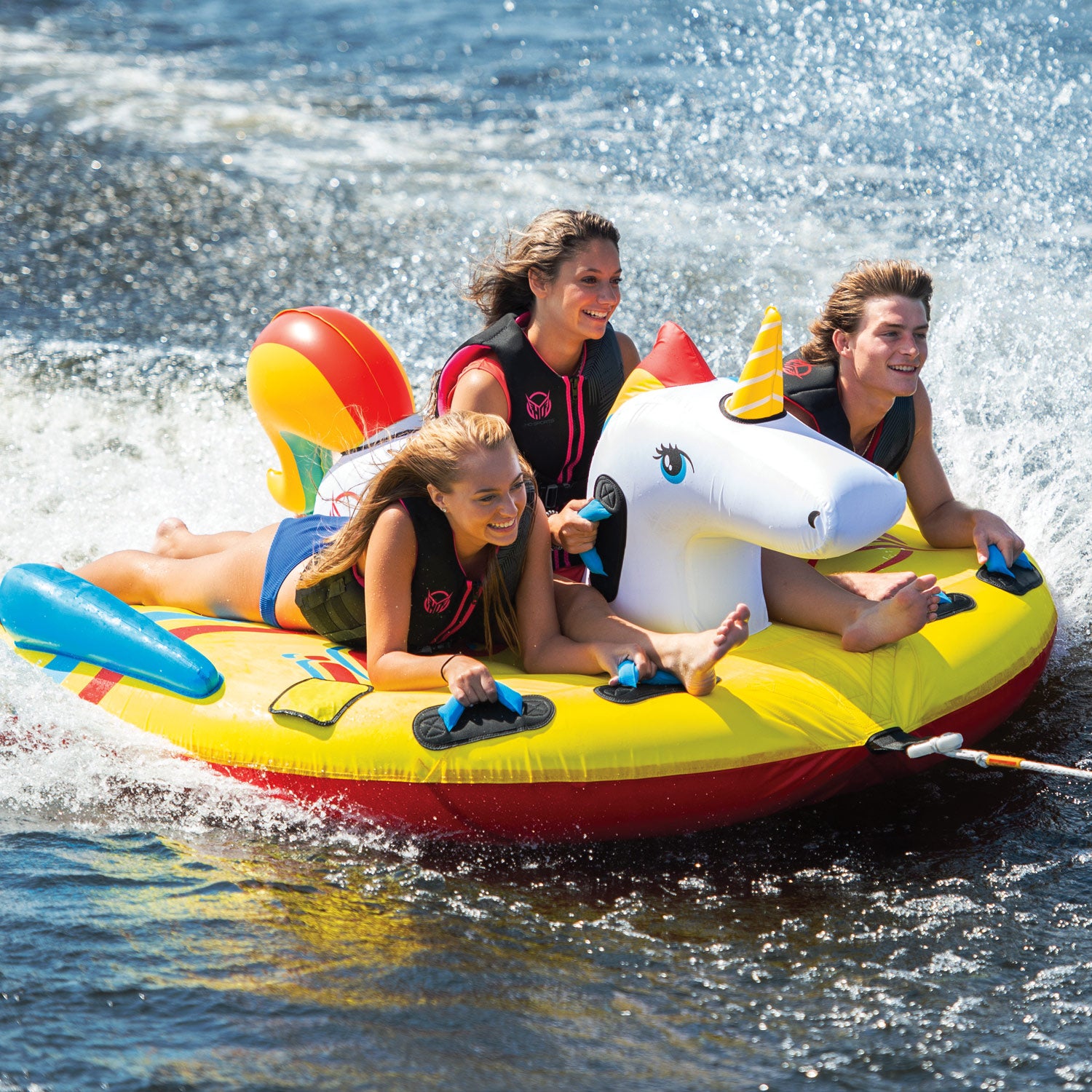Getting the right wakeboard is only half of the story. Many riders don’t know this, but a comfortable and supportive pair of boots gives you better board control, reduces risk of injury and keeps you riding longer. Follow this guide to find the perfect wakeboard footwear. Your feet will thank us later!
|
COMPATIBILITY NOTICE While most wakeboards will be compatible with any boots it’s not always the case. The standard hole-pattern for a wakeboard boot baseplate is a 6-inch but much older boards/boots will have an 8-inch which will limit compatibility. To find out the hole-pattern of your board, simply measure the distance between the two outermost inserts for each side of the boot pictured below.
As well as hole pattern, the binding bolts and wakeboard inserts must be compatible. Until relatively recently wakeboard boots were attached using ¼” imperial bolts. Most wakeboard brands have now redesigned their boards to be thinner, requiring a shorter bolt that has an M6 thread. Imperial bolts are easily replaced with equivalent M6 bolts but take care when fitting new boots to older boards as forcing the wrong bolt into a wakeboard will cross-thread and ruin the boot inserts. |
OPEN TOE VS. CLOSED TOE
Whether you want open or closed toe wakeboard boots is the first thing you need to consider. Open toe boots are the most common and versatile style of wakeboard binding. They are typically available in size ranges so are perfect if you want to share your wakeboard around or give young riders room to grow. Open toe boots are generally easier to get in and out of than closed toe boots.
Closed toe boots offer you precise sizing for greater comfort and board control. They are more supportive in the ankle and way more comfortable to wear than open toe boots. If you’re the only one riding your board and you want the best performance, choose closed toe boots. Not only do they improve your riding they also come with a ton of features that aren’t included in open toe boots.
FIT
Whether open or closed toe wakeboard boots should always have a tight, firm fit. To control your board you need a solid connection so your boots should hold your foot snugly into the heel with you laces tightening firmly over the toes. If you’re fitting closed toe boots make sure your toe is just touching (but not curled) the end of the boot for the correct fit. Closed toe boot sizes are the same as conventional shoe sizes while open toe boots offer different size ranges.
Another consideration on fit is ankle flex. Open toe boots usually have a lot of flex in the ankle so you get a forgiving ride but closed toe boots come in different flex patterns to support different styles of riding. A flexible ankle gives you a freeride feel on the water and allows you to easily tweak out grabs in the air. A stiff ankle is more supportive to give you more response and edge control but they are rigid so make it harder to tweak out grabs and make your board less forgiving.
FASTENING
Laces are the most common fastening system on wakeboard boots. They are typically a stiff nylon lace that fasten with a lace lock around the ankle. Dual lace zones with a lock at the ankle and over the toes offer the firmest fit and easiest access. Velcro is also a commonly used fastening system that makes for even easier entry and exit but lacks the firm tightening of laces.
Many closed toe bindings have gone to a snowboard style binding with removable boot. They give you the best of both worlds. A comfortable boot that is easily removed with the superior tightening of a binding system. Having the ability to walk around in shoes makes them perfect for the cable park too.
STANCE
The best stance to have on a wakeboard is a “duck feet” stance. To try this stance at home, stand with your feet just wider than your shoulders and squat. Notice how you balance better in this position with your toes pointed out slightly than if you keep your feet straight? On a wakeboard this stance offers the firmest feel and control of your board, provides the most balance and helps you avoid injury.

“Duck feet” stances should be symmetrical in boot angle and stance width to provide you with balance and consistency when riding switch. A good starting point for boot angle is around 10-12 degrees and your stance width should be just wider than shoulder width. A narrow stance will make spins and flips quicker but you’ll lose balance and if you go too wide you’ll lose movement in your knees. If you’re tall you might need a wider stance than a short rider but what feels comfortable for you should ultimately guide your stance set up.
We hope this guide has helped you to find your next pair of dream boots. If you’re still not sure please GET IN TOUCH with our friendly staff. We’re here to help!






